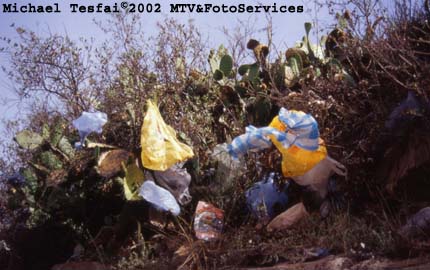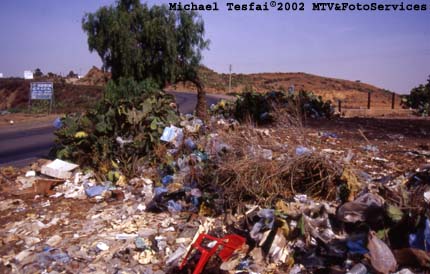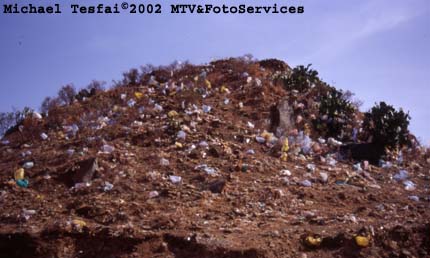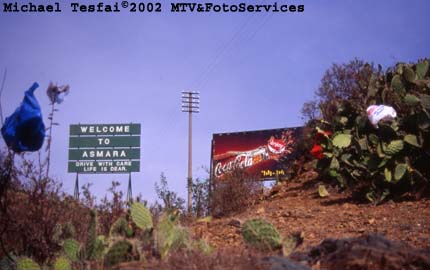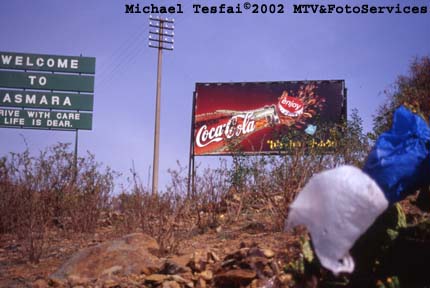Environment / see also
"endangered species"
"Flying bags" banned
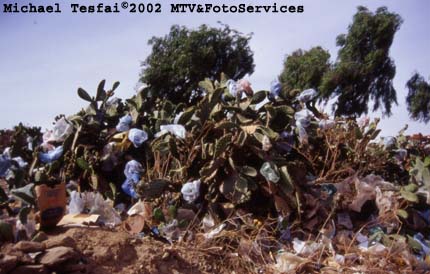 |
ASMARA, 15 Apr 2002 (IRIN) - Lightweight plastic carrier bags have been
banned across Eritrea as part of a major new campaign to clean up the
countryside.
The blue bags, used by shoppers all over the country until last week,
are neither bio-degradable, nor strong enough to be used more than once.
Consequently millions were thrown away each year, causing extensive environmental
damage. They blocked drains and water pipes, littered towns and agricultural
areas, and were being eaten by animals, causing hundreds to die.
|
Semere Russom, the mayor of Maakal Region - which includes the capital, Asmara
- banned the bags from the city last week. "Anyone who has travelled around
Eritrea has seen the effect they have," he told IRIN. "They were everywhere.
They have polluted the environment and were killing cows, goats and sheep."
Mayor Semere said that the bags, which are imported from Dubai and Saudi Arabia,
were also blocking water culverts around Asmara. "The culverts cost millions
of dollars to build, yet they were being stopped from working effectively by
these tiny plastic bags. It was affecting our water supply," he said. "People
were also putting their rubbish into these bags before throwing it away, so
nothing was disintegrating naturally."
Shoppers are now being encouraged to use other bags - such as the locally made,
traditional straw baskets / Zembil. Eritrean companies
have been asked to produce alternative shopping bags, made from other fibres,
such as cotton. Heavyweight plastic bags, which can be re-used, are still permitted.
|
Public reaction to the ban has mostly been positive. Many shops now wrap
foodstuffs in paper, or ask customers to supply their own shopping bags.
"It is a little more work for us," said one Asmara shopkeeper.
"But the bags were dangerous and ugly."
Tecle Mariam, a senior environmental management expert at the ministry
of land, water and the environment, said the ministry had been campaigning
against the "flying bags", as they are known, for two years.
"We have been trying to tell people about the damage they cause through
the radio, television and in newspapers," he said.
|
 |
Tecle said his ministry, together with the ministry of education, was planning
a programme to teach young Eritreans to keep their surroundings clean and to
clear any rubbish and litter they saw in public areas.
"We want to introduce environmental studies to the school curriculum to
teach the importance of good health and good environment," he said. "School
children must learn to be good citizens and that they have a stake in keeping
their country clean."
A number of towns have already banned the bags, including Keren and Dekemhare,
but the decision to outlaw them in Asmara is likely to be followed by other
regions.
Provided that Asmera will not welcome its garbages.

